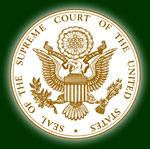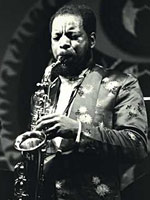Tip sheets highlight timely news and events at Washington University in St. Louis. For more information on any of the stories below or for assistance in arranging interviews, please see the contact information listed with each story.
Presaging the Supremes
Supreme Court decisions predicted by online computer program

As the U.S. Supreme Court moves into its new term, litigants, attorneys and the public will be closely watching its docket and speculating about its decisions. Now, thanks to the Supreme Court Forecasting Project at Washington University in St. Louis, court watchers everywhere will be able to log on to the Internet and obtain a forecast of how individual cases are likely to be decided. The project accurately predicted decisions in 75 percent of the cases heard by the Court in its last term.
Campaign 2004
Democrats ‘are in a bad way’ for 2004 elections; liberal and moderate wings of party may duke it out

While most 2004 campaign coverage remains fixated on the wild and crazy race for the Democratic presidential nomination, the 2004 election also promises to be especially challenging for Democrats seeking seats in the House and Senate. The Democrats are in for a fight in 2004, and the liberal and more moderate factions of the party may likely be their own worst enemy if they engage in a political and philosophical battle for the hearts and minds of voters. “The Democrats are in a bad way in 2004,” said Steven Smith, Ph.D., an authority on congressional politics and the Kate M. Gregg Professor of Social Sciences in Arts & Sciences.
Grocery strikes
End of St. Louis grocery strike sends conflicting messages to strikers around the U.S., says labor expert

“The settlement of the grocery strike in St. Louis sends conflicting messages to the parties involved in similar strikes in California, West Virginia, Ohio and Kentucky,” says Neil Bernstein, an expert in labor law and legal issues relating to striking workers and a professor of law at Washington University in St. Louis. In St. Louis, the Union did achieve an important victory in convincing the employers to eliminate the annual deductibles that they tried to impose for the first time. On the other hand, the contract requires them to make larger co-payments for doctor visits and prescription drugs.
Judicial activism
Judges should be vigilant in their protection of minority interests; take example from ‘free jazz’ pioneer Coleman

Although United States laws attempt to safeguard the rights and interests of minorities, the subordination of socially disfavored groups persists in part because of informal structures and networks that have the effect of perpetuating social inequality. Christopher Bracey, an expert in the fields of American race relations and civil rights and associate professor of law at Washington University in St. Louis, says that judges must respond to these destructive patterns of social and economic stratification through their interpretation of the law, or successful judging. In his article, “Adjudication, Antisubordination, and the Jazz Connection” (Alabama Law Review, Vol. 54), Bracey says inspiration on how to realize democracy through judging can be found through the free jazz movement, more specifically, the work of Ornette Coleman.